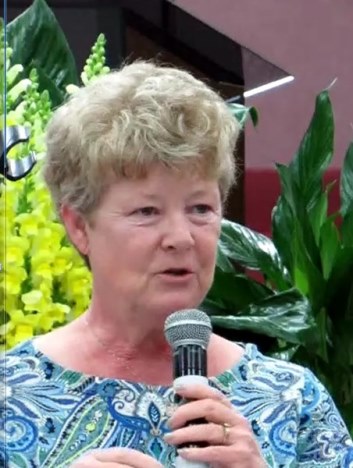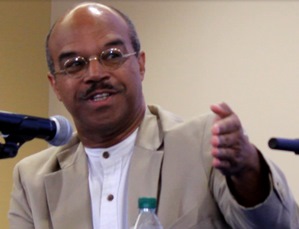Window on the West
Opinion column
by Mary Rupert
When the votes were tallied Tuesday night in the Unified Government and Board of Public Utilities primary, two candidates, Melissa Bynum and David Haley, received the most votes in Kansas City, Kansas.
Bynum, the incumbent Unified Government commissioner from the 1st District at large, received 2,709 votes, while Haley, a candidate for the BPU, at large position 3, had 2,400 votes. The results are unofficial until the votes are certified later this week.
What the two candidates had in common was a high degree of visibility, with a lot of campaigning in the primary, and a certain amount of name recognition from being elected previously. Bynum attended lots of events, neighborhood meetings and forums during the primary. Haley, who has good name recognition from being elected to the state Legislature for decades, also was very visible at events, and his campaign signs seemed to be everywhere in the northeast area.
In a low turnout election, with 9.3 percent of the registered voters showing up in the primary, the emphasis sometimes is on candidates who can get their supporters out to the polls to vote for them.

“I was really happy with my own performance in the primary,” Bynum said today. “You never take anything for granted and you never assume anything, but I knew I had worked hard, so to have those results come in the way they did, I was really pleased.”
Now that the primary is over, Bynum said she will change her focus to county-wide because the commissioner, 1st District at large, contest is county-wide in the general election.
Some voters might have been hesitant to vote on Tuesday because there were only one or two contests on some ballots, she said. They might have been more motivated if there had been five or six on their ballots.
“With that said, you can only hope that the general election has a better voter turnout,” she added.
Bynum’s opponents were Mark Gilstrap, a former state senator, and Steven James, a community health worker. Gilstrap received 1,351 votes and James received 612 votes. James attended three of four candidate forums. Gilstrap, who came in second, was not at the four candidate forums that Bynum attended, but he attended and spoke at a Leavenworth Road Association meeting, according to sources.
Bynum’s top issues included continuing to work with the mayor and commission on the revitalization of downtown and the northeast area; continuing to work on upgrading public safety buildings including fire and police stations; and continuing to support the neighborhood and community groups that are doing wonderful things in the community, she said. An additional fire station is under construction in the Piper area, but another one is needed, according to the fire study. A new police substation has been built in Argentine, and Bynum said she supports placing a new police substation somewhere in the northeast area.
Some of the buildings the firefighters and police officers work in are “pathetic” and it’s important to continue to try and upgrade the buildings as much as they can, she said.
As compared to the 2015 election, the 2019 election hasn’t been terribly different but it’s “way longer,” Bynum said. Earlier it was a 60-70 day cycle with the spring elections. Now, filing in June, with the primary in August and the general election in November, it’s more than double the amount of campaign time, with a five-month cycle, she said.
“I don’t know if that’s better or not,” she said. “I don’t think I’ll know that answer until after the general election.”
At the time that the switch was made from spring to fall elections for city and school boards, legislators said they hoped it would mean higher voter turnouts. The August 2019 election, in sunny weather on Tuesday, did not have a better voter turnout than the February 2015 primary. The turnout at the Aug. 6 primary was 9.3 percent, as compared to 9.98 percent in February 2015.
Two other incumbent UG commissioners, Ann Murguia and Harold Johnson, also came in first place in their individual primaries. Murguia will face Christian Ramirez, and Johnson will face Jorge Luis Flores in the general election.

In the contest for BPU, at large position 3, Sen. David Haley got a little emotional when talking about the people who supported him.
“To have been allowed to have served so long and have such broad support from the district I’m in makes me a little emotional and it rededicates my commitment to do the best I can to the job I’m elected to,” Haley said today.
“People count on me, and I count on people,” he said.
“It’s a symbiotic relationship that I’m humbled to serve in my hometown,” he said. “To send me off to do a job, and to say, ‘David, keep putting you in job in the Legislature and now you want to tackle the many questions on this monopoly utility, that have been questioned for decades, but once elected no one can get a handle on it. We trust you, David.’ I appreciate my community.”
The BPU at large position 3 vote was split five ways, he pointed out. If the turnout continues small in the general election, which can’t be known currently, a larger turnout from Haley’s base in the 4th District could have a significant effect. Regardless of the effect, he said he hoped the turnout is larger for the Nov. 5 general election.
In second place in the BPU at large position 3 contest was Rose Mulvany Henry with 1,607 votes, and in third place was incumbent Norman D. Scott with 1,067. Scott will not advance to the general election, if these figures remain about the same after certification.
Haley said he financed his primary election, spending less than a thousand dollars on it, and he said he was outspent 7-to-1 by Mulvany Henry. It worked out to be about 40 cents a vote for Haley’s expenditures and over $7 a vote for Mulvany Henry, he said.
Haley said a key message of his campaign in the primary was that “the pledges I make are what I keep after elected.”
He said during the campaign that other candidates in past years had promised to make changes at the BPU, but those changes were not realized.
Earlier this year, Sen. Haley introduced a bill in the Legislature that would have allowed the BPU to be put under the Kansas Corporation Commission to answer questions from consumers. He did not, however, support putting the BPU under the KCC for regulatory rate hearings. His bill was opposed by the BPU at committee hearings and the idea of placing the BPU under the KCC was opposed by Mulvany Henry at a candidate forum.
Haley said he did not support the sale of the BPU, and if elected, would not support a sale of the BPU to a private entity during his first term. He said he is not against studying the idea after the first term, but that did not mean he supported it.
In another BPU contest, District 3, Rep. Stan Frownfelter received 653 votes to incumbent Jeff Bryant’s 465, to advance to the general election. Dustin Dye received 312 votes and Aaron Coleman, 229.
In BPU, District 1, incumbent Robert “Bob” Milan placed first with 52.5 percent of the vote, 1,282 votes, to LaRon Thompson’s 750 votes. Ken Snyder had 406 votes.
The past election was characterized by low voter interest, with voters sending few campaign messages to the Wyandotte Daily. While there was some interest at the candidate forums, the seats were not all filled. Most of the candidates did not send their bios, campaign announcements or campaign statements to the Wyandotte Daily this year. At a couple of polling places on Tuesday, there were not a lot of voters’ cars parked there, and there was no one standing a block away holding campaign signs to support their favorite candidate, as there has been in the past. There didn’t seem to be too much discussion of the campaign on social media, even on Election Day.
To reach Mary Rupert, editor, email [email protected].
